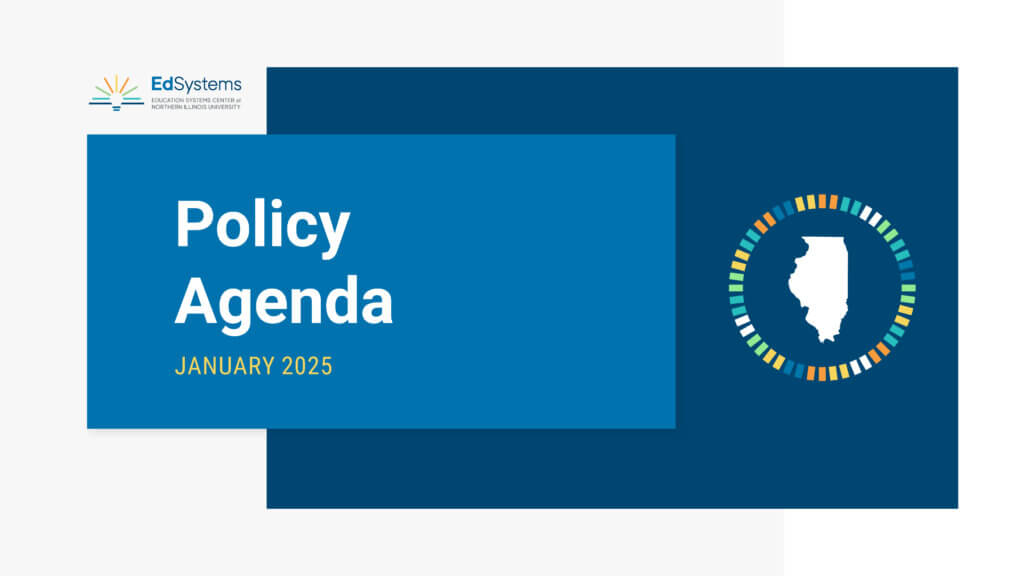Policy Agenda
Building a roadmap for equity through strategic policy development and systems-level change
EdSystems employs a bi-directional approach to driving systems-level changes: working at the state level to create ecosystem and policy change while simultaneously working at the local level to create organizational change. We collaborate with policymakers and practitioners across Illinois to align local college and career readiness efforts with state policy, while elevating local experiences and learnings to state-level tables.
We have seen progress in policy development and student outcomes in Illinois, with participation rates in college and career pathways and early college courses increasing. However, there is still much room for continuous improvement, particularly with an eye toward more equitable student access and outcomes.
Strategic Alignment
Released in 2025, our policy agenda helps situate EdSystems alongside broader efforts to articulate visions for more focused areas within the preschool to college and career (P-20) pipeline. Our extensive experience positions us to help bridge the overlap between secondary, postsecondary, and workforce systems.
Policy Agenda Pillars
What needs to be true about our policies and systems in order to address core challenges and drive more equitable access and outcomes for students? That question drove the development of the policy agenda as we reflected on challenges identified through our fieldwork and data engagements. The challenges and our aims span local, regional, and statewide work and fall into four thematic areas:
Leadership, Governance, & Vision
As fundamental components of policy development and implementation, how do these elements shape what is achievable in Illinois? How can they drive equitable outcomes for students?
Student Experience & Conditions
How do students experience and navigate the P-20 pipeline? How are students faring overall, and how do they feel about it?
Policy Evaluation & Continuous Improvement
Are our policies driving the types of experiences and outcomes we intended? Do we have adequate data resources to examine equity in our systems, and do we have the capacity to use those data to drive continuous improvement processes?
Future Readiness
How do we anticipate the realities and challenges that will shape our world and systems in the future? How can we design systems that prepare students to adapt and thrive in evolving conditions?
These pillars will guide our work in the coming years, shaping which strategies and levers we pursue alongside our partners to drive continued systems-level change and evaluation in service of student success.
Cross-Cutting Principles
Systems produce what they are designed to produce. We are animated by three cross-cutting principles:
- In equitable systems, student demography, geography, and resources do not correlate with access and outcomes.
- We strive to shift the burden of advancing along educational pathways to the system itself and away from students and their families.
- Our systems should be designed collaboratively and grounded in quantitative and qualitative data, including student voice.
These principles have long been implicit in our work. By naming them more explicitly, we intend to hold ourselves accountable and model the values we hope to see more broadly embodied in college and career readiness efforts in Illinois and beyond.
Building the Pipeline: Our Policy Agenda in Action
Too many Illinois students still struggle with the transitions from high school to college and career. In this blog series, explore each pillar of our policy agenda and how systemic change can create equitable pathways for every student:
Pillar 1 | Leadership, Governance, and Vision: Centering Student Success in a Chaotic Context
Pillar 2 | Creating Conditions Where Students Can Thrive
Pillar 3 | From Policy to Progress: Charting a Path to Data-Informed Continuous Improvement for Student Success
Pillar 4 | Equipping Students for Success in a Rapidly Evolving College and Career Landscape
